“But if that’s our only option…” Patricia said.
“If that’s our only option, we don’t have an option—not in the long-term,” her husband said quietly. “Joe’s right. When they built her, they did a hell of a job, but no one ever expected her to turn into an orbital habitat at the other end. She’s designed to get us to a planetary environment, not support us indefinitely in space.”
“Then we are well and truly screwed,” Leonidas Konstantopoulos, the ship’s chief medical officer growled, and heads nodded heavily around the table.
They shouldn’t have been screwed, Anderson thought bitterly. Angelique Calvin had taken the time to do it right, and KCR-126-04 had come up golden after her painstaking, exhaustive astronomical examination of possible destinations. The G4 star the expedition had renamed “Calvin” in her honor had multiple planets; one of them was squarely in the “Goldilocks zone”; its size and mass had promised a gravity almost identical to that of Earth; and spectroscopic analysis had confirmed an oxygen-nitrogen atmosphere and an abundance of H2O. KCR-126-04 was a long way from Sol–just over 201 LY—and very few of the other stars in its vicinity were good candidates for habitable worlds, but that, too, had been fine with Calvin. Anderson sometimes thought that was because she’d known she wouldn’t be making the voyage. Perhaps she would have settled for a destination closer to Sol—like Beowulf, only fifty years’ travel from humanity’s homeworld—where her colonists were more likely to have close neighbors if she had been. But perhaps not, too. Given the inability to exceed the speed of light, even “close” interstellar neighbors were hardly right next door, so the likelihood of ongoing physical contact between them wasn’t all that great.
But Anderson was pretty sure she’d had other reasons, as well. He himself had never lived under the Earth Union’s authority. All he had to go by were the history books, the history vids and holos. His own life experience had been utterly different from anything they portrayed, and even if that hadn’t been so, the personal notes left by the original crew made it clear the official histories had been… filtered to suit the Earth Union’s view of the universe. He didn’t understand that, either. Not experientially. But he’d read Angus Calvin’s journal, and he knew Angelique had wanted a destination so far from Sol that the poisonous political ideologies she believed were choking her homeworld to death would never reach it.
Apparently, she’d figured 200 light-years was probably just about far enough.
Besides, Calvin III was such a perfect destination. Despite the distance, they’d known that.
They’d selected three alternate destinations just in case, though. They could have diverted to any one of them in the first thirty or forty years of the voyage if they’d discovered their chosen home was less desirable than they’d thought. But they’d used those decades for additional observation of Calvin III, refining their knowledge of it as they drew ever closer to KCR-126-04, and every one of those observations had only confirmed its suitability. Indeed, Maryellen Abramatsovna, the expedition’s original astronomer, had noted in her journal that Calvin III “could have been Earth’s twin… only better!”
So those alternates had been passed up and Calvin’s Hope had continued toward her destination.
And, as she came within only two light-years of journey’s end at last, everything had changed.
“Is there any hope at all of colonizing the surface?” Seong asked.
“No,” Patricia Anderson said gently. She’d inherited the position of chief astronomer as well as command of Calvin’s Hope ’s survey shuttles. Now she shook her head, her expression grim. “We knew it was going to be bad from the moment the Hammers hit, Cho Mee. We just never let ourselves believe how bad.” She shook her head again. “I don’t have the library resources to nail down all the details to do an accurate comparison, but sixty-six million years ago, it was Earth’s turn to get hit. They called it the ‘dinosaur killer,’ and it left a crater over a hundred and eighty kilometers across. But Earth only got hit by one of the damned things, and it was only about fifteen kilometers in diameter. Hammer Alpha was two-thirds again that big, it was traveling faster… and it hit less than ten years ago.”
She paused, her expression haunted, and Anderson touched her fist as it clenched on the tabletop. They knew exactly when the massive asteroids had hit, and his wife still woke, weeping, from nightmares of that moment.
Angelique Calvin had seen to it that Calvin’s Hope ’s telescopes were the finest technology could build. They were capable of awesome resolution… and Patricia had been visually observing their new home when the terrible glare of Hammer Alpha reached her. Calvin’s Hope was still four years from turnover and more than five and a half from Calvin III, and that sudden boil of light had two years to cross the Gulf between her and the planet. Patricia had known what she was witnessing had happened years before… and that hadn’t made it one bit less horrifying.
She hadn’t seen the asteroid before impact. The cameras had captured it, but it had taken significant enhancement to actually pick it out in the instant before it hit atmosphere. Such a tiny thing, compared to the scale of a planet. The computers said it had been no more than twenty-five kilometers across, but it had been traveling at over 50 KPS when it hit atmosphere at an angle of sixty-four degrees. And if she hadn’t seen it coming, she’d seen the horrific impact only too well.
She’d been mapping Calvin III’s continents, humming to herself as she evaluated probable landing sites, and the strike had been squarely in her field of vision. She’d seen the atmosphere splash away as the Hammer entered it. She’d seen the incredible fireball, seen the huge vapor plume hurl fiery ejecta clear into the thermosphere. She’d seen the atmosphere go dark and curdled, seen the planetary albedo change in a matter of hours. She’d watched the spectral analysis shifting and known— known —what that celestial desecration might mean for the survival of her friends and family.
And then, eight hours later, Hammer Beta landed.
She hadn’t seen that one. Alpha’s companion had come in on the far side of Calvin III… which had put it almost squarely in the middle of the Angelique Ocean. Beta was smaller than Alpha, but its ocean impact had made it even deadlier, in its own way.
“It’s a frigging nightmare down there,” she continued harshly, “and it’s still getting worse. The direct energy release was almost seven hundred yottajoules—that’s one-point-five trillion megatonnes—in a fraction of a second. If you’d been standing two thousand kilometers from the impact point, your clothes would’ve caught fire from the thermal pulse, and all of that heat was transferred to the planetary atmosphere. Alpha’s crater is over six hundred kilometers across, and everything that used to be in that hole had to go somewhere. Debris—rocks, dust, volcanic glasses—was blown as much as fifty kilometers from the surface, and when it reentered the lower atmosphere, it was so hot it set fires anywhere there was fuel. It was like putting the whole damned planet into an oven, but after the fires, came the cold. There was so much crap in the atmosphere that it was like throwing the switch on one of our freezers. What hadn’t burned froze, and it was a coastal strike. Two thirds of the crater are inland from what used to be the coastline, but Alpha vaporized something like five hundred and sixty million cubic kilometers of rock, a lot of it shallow sea bottom with heavy concentrations of limestone and gypsum. The sulfur content from that’s having a catastrophic impact on the atmosphere and pushing the albedo even farther.
Читать дальше
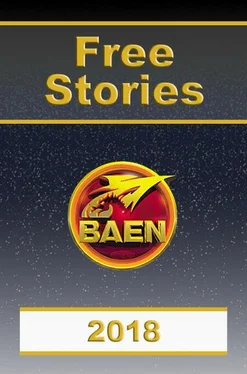

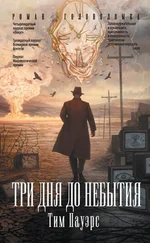
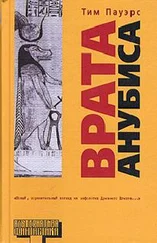

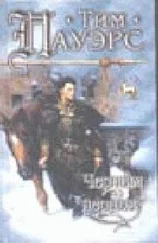
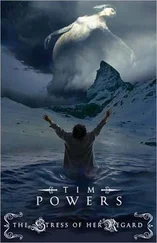
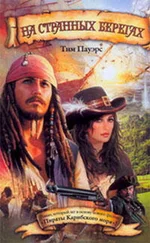
![Тим Пауэрс - Последние дни. Том 2 [litres]](/books/393813/tim-pauers-poslednie-dni-tom-2-litres-thumb.webp)
![Тим Пауэрс - Последние дни. Том 1 [litres]](/books/394090/tim-pauers-poslednie-dni-tom-1-litres-thumb.webp)
![Тим Пауэрс - Последний выдох [litres]](/books/402145/tim-pauers-poslednij-vydoh-litres-thumb.webp)